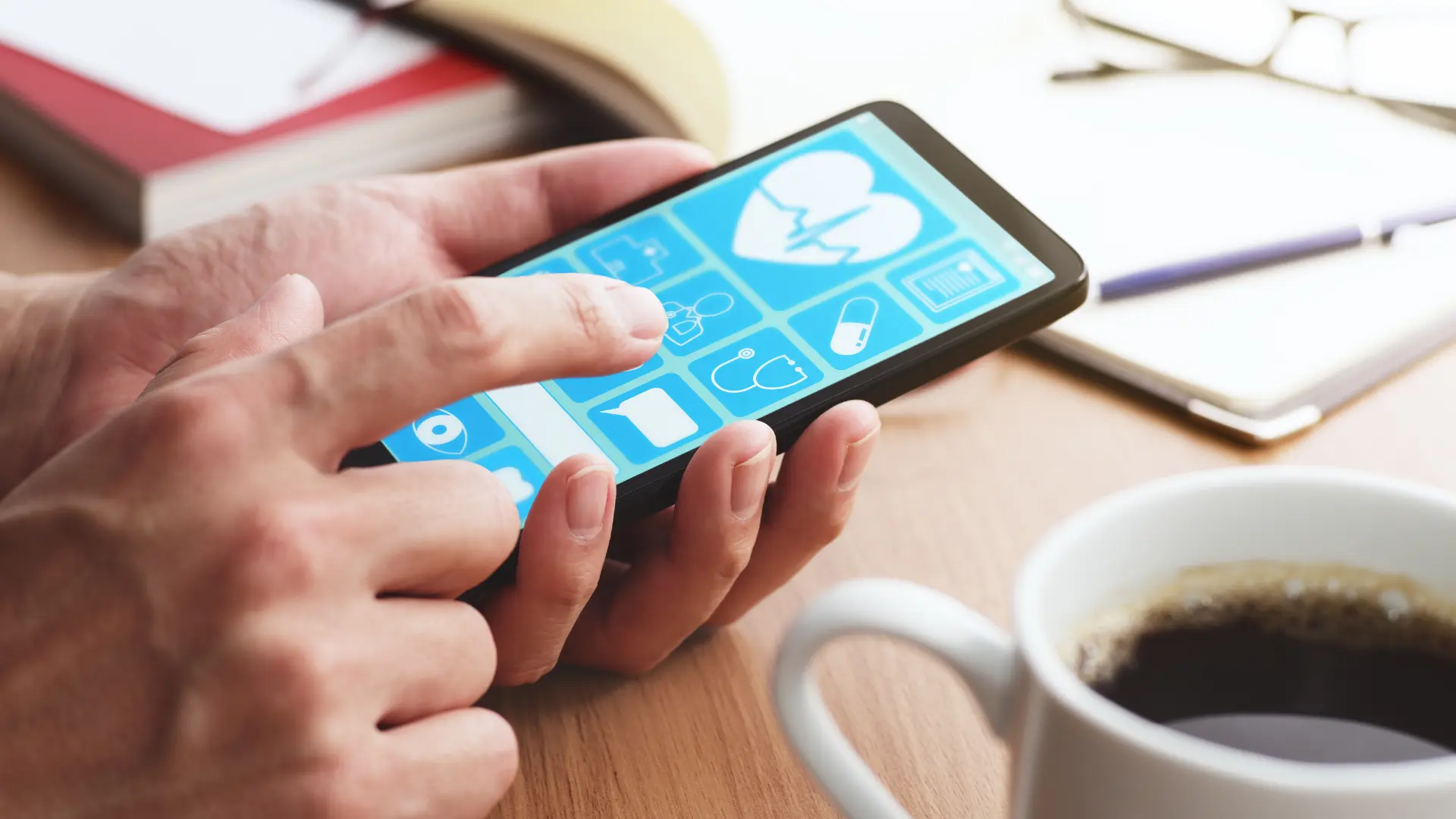Hospital administration is evolving because to mobile health (mHealth) apps, which make it more effective, responsive, and patient-focused. mHealth applications began as straightforward fitness and wellbeing trackers, but they have since developed to manage hospital workflows, patient data communications, invoicing, and many other areas.
With the widespread use of smartphones and the rise of health digital programs, mobile application creation services are becoming a necessity for the modern healthcare system. These apps integrate administrative and clinical tasks, which makes healthcare services more accessible and transparent. If mHealth solutions are paired with technology like RPA, Android, iOS, cloud computing, and so on. They provide great value to healthcare administrators.
Why Mobile Apps Matter in Healthcare Administration
Healthcare administration has historically witnessed manual procedures for registering patients, maintaining records, as well as coordinating staff appointments or billing. These processes are more time-consuming than they need to be and could lead to errors. Mobile apps, under the aegis of an experienced Android app development firm or iOS company, could automate and thus digitalize these processes. This will result in improved service delivery, lower costs and higher efficiency among employees, and higher levels of satisfaction.
Core Administrative Areas Transformed by Mobile Apps
1. Appointment Management and Queue Optimization
Mobile health apps allow for the self-booking of appointments, reminders of appointments and even checks. This decreases the amount of front desk traffic and allows for the highest utilization of clinic schedules. The dashboard of the app is integrated, allowing health administrators to track the availability of physicians and walk-in traffic more effectively.
2. Digitizing Patient Registration and Intake
Patients are able to fill out the mobile forms to request appointments as well as medical information. The information is then imported directly into hospitals’ databases. RPA in healthcare enhances this by automatically validating and synchronizing the data across systems, which reduces the need for entry of data by the administrative staff.
3. EHR Integration
The most significant change is having access in real-time to an EHR. Mobile apps allow physicians to gain access to lab reports, diagnostic prescriptions, and patient histories. Medical professionals and doctors can also edit the patient documents, which are maintained in a central location with a version control system for doctors during consultations.
4. Telehealth and Virtual Care Coordination
Remote care is in most demand nowadays. Mobile apps are now capable of remote medical care. The administrative staff utilizes dashboards on the back end to schedule appointments, track sessions, process electronic consent forms, and even bill patients. This gives clients more access to health care and also optimizes administration.
5. Medical Inventory and Supply Chain Tracking
Some healthcare apps include inventory management tools that keep the inventory levels of drugs, equipment, as well as consumables. Administrators are alerted when reorder thresholds are met. Together with RPA automated systems, RPA will provide immediate inventory, which prevents excess stock and supply shortages.
What Makes an Application Truly Effective in Health Administration
The app for healthcare created by an advanced mobile app development facility has characteristics that direct the efficiency of operations:
- Access to the Role-based Access for doctors, administrators, and patients
- Push notifications to remind you of alerts, notifications, and updates for emergencies
- Cloud backups for vital patient and billing information
- Payment gateways that are integrated into the app to facilitate safe transactions
- Analytics dashboards allow for data-driven decision-making
- A HIPAA/GDPR compliance assures conformity to the law.
The experienced development firms that offer Android app development services or iOS application development services ensure that these fundamental functions are implemented according to the needs of the healthcare company.
RPA for Healthcare: Improving the Backend of Mobile Applications
The mobile application manages the front end of interactions with users, while RPA is automated through backend workflows. A skilled local RPA consultant can develop robots that can minimize the amount of human effort required by their clients in repetitive tasks like document management, data entry, and claim processing.
Use cases can include:
- Insurance Verification: Automatically validating the patient’s coverage from insurance databases
- Claims Submissions: Submission and monitoring of insurance claims on the inputs of mobile forms
- discharge summaries: Summaries automatically generated from notes on clinical visits, and synchronizing with EHRs
- Conformity Audit: Checking the digital logs of your company for regulatory violations
Automating processes in the field of healthcare helps reduce the requirement for large administrative teams, reduces operational time, and provides the sameness of care.
Specific to the device: Android vs iOS for applications in the field of healthcare

Android Application Development Services
Because of the cost and broad acceptance of Android hospitals, public and rural clinics are likely to favor Android-based options. Offline access and support for a variety of tablets are advantages that are ideal for countries in need and multi-location systems.
iOS Development Company Solutions
Because of their high-security intentions and their focus on seamless performance and UI uniformity, iOS applications are considered the top choice for healthcare institutions with premium facilities. They can provide complete security for applications that are part of senior health programmes, special departments, or patient applications.
In essence, the power lies in the warehouse using device-optimized applications that are integrated with RPA-enhanced operation regardless of the platform.
Real-World Applications and Case Examples
- Multi-Specialty Hospitals: Mobile applications are used to schedule appointments, portals for patients, and video consultations. Administrators have an overview in real-time about the workload of patients and the availability of physicians.
- Diagnostic Labs: From results of testing through the payment of bills. Patients set up a collection of their samples using the applications. In the back, billing and invoicing are processed via RPA bots.
- Pharmaceutical Services: These apps are used to remind patients with regards to prescriptions as well as refill times. The inventory is automatically updated in the system for management.
- Health insurance providers: Health are accomplished to upload documents to claim through mobile applications. RPA bots check documents to allow payout processing.
These examples show that when it comes to mobile applications, it’s not just a simple interface that can be used for front-facing use. They are full-fledged applications that integrate into the transformation of administrative processes.
Benefits for Healthcare Administrators
- Increased Efficiency in Operations: The more efficient handling of tasks results in fewer time delays and less paperwork.
- More productive staff: Administrators can manage increasing numbers of patients as well as administrative duties without burning out.
Future Directions: AI, Wearables, and Interoperability
The next wave of the mHealth administration will focus on:
- AI-Based Assistants: Chatbots that can be used to help staff in the administration department to locate records or answer questions from patients
- Wearable sync: Apps for collecting the data in real time from health trackers to update EHRs without manual intervention
- System Interoperability: Unified systems that are capable of connecting insurers, hospitals, and pharmacies using mobile API-based applications
- Map of the Patient’s Journey: Tools capable of depiction the entire process of care so that administrators can prepare appropriately
These features, in conjunction with a variety of applications for mobile development that are custom-designed, ensure the future viability of healthcare facilities.
Conclusion
The convergence of healthcare technology and mobile devices has led to the development of solutions that are efficient, rapid, cost-effective, and speedy. With the convergence of RPA and mobile apps in healthcare, hospitals stand a chance to significantly improve their operations, minimize mistakes, and meet their patients’ needs.
In the event of a network that connects multiple hospitals or establishing an incubator for a wellness platform, working with the best Android app development service, iOS development company, or RPA firm could give you the edge needed in the field of healthcare today.




